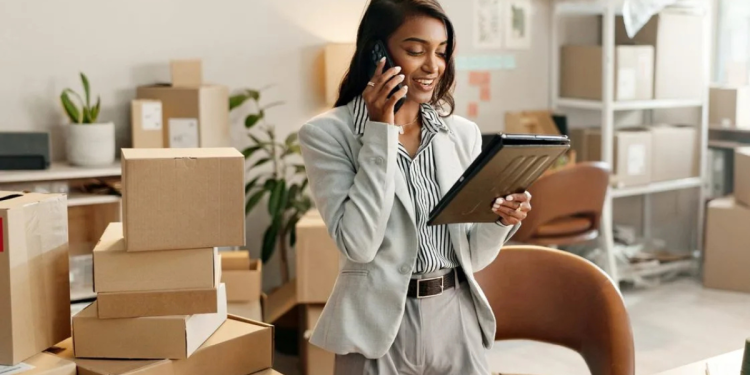In 2025, retail is evolving at a pace driven by technological innovation and shifting consumer expectations. Faster deliveries, transparent tracking, eco-friendly operations — these are no longer optional add-ons but critical differentiators. Today, partnering with modern third-party delivery services is not merely about logistics; it’s a strategic move that drives efficiency, customer satisfaction, and long-term growth.
One standout player in this space is DutchX. Specializing in same-day and next-day zero-emission deliveries, powered by a 100% employee-based workforce, DutchX represents the future of retail logistics. Here’s what retailers need to know as delivery becomes not just a service, but a tech-powered competitive advantage.
1. Seamless Tech Integration Is Non-Negotiable
Gone are the days of manual spreadsheets and phone-tag between retailer and courier. Cutting-edge third-party delivery services offer robust technology stacks that integrate directly with e-commerce platforms, POS systems, and inventory management tools. Orders are processed automatically, delivery options are displayed in real-time, and customers receive live tracking — all without retailer intervention.
APIs enable this seamless data flow: order confirmation, dispatch timing, route optimization, and completion status are communicated across systems. Retailers gain operational clarity, reduce manual errors, and can focus on marketing and product development — not shipping logistics.
2. Scalability and Flexibility at the Core
Retail demand fluctuates — holidays bring spikes, promotions cause surges, and growth requires adaptability. Building an in-house delivery fleet for all scenarios can be cost-prohibitive and risky. By partnering with third-party providers, retailers enjoy a flexible, scalable network that fits demand precisely.
On typical days, the system scales down; during high-volume periods, capacity rapidly ramps up. Retailers avoid fleet maintenance, idle assets, and unexpected labor costs. Instead, they pay for delivery capacity only when needed.
3. Redefining the Customer Experience
Fast delivery is table stakes in retail today. What sets businesses apart are speed, reliability, and transparency during the delivery journey. When customers are automatically notified, can track shipments in real-time, and receive accurate arrival windows, satisfaction — and repeat purchases — skyrocket.
Third-party delivery platforms provide digital touchpoints that elevate the experience: branded SMS, delivery updates, ETA adjustments, and easy contact channels. Some even allow customers to reschedule or provide delivery instructions post-purchase. These conveniences drive loyalty and reduce post-sale frustrations.
4. Sustainability as a Tech-Driven Value
Environmental responsibility is now central to brand identity. Retailers today face immense pressure to reduce carbon footprints. Addressing this, DutchX offers zero-emission delivery, leveraging electric vehicles and optimized routing powered by machine learning.
On the backend, logistics platforms calculate carbon impact scorecards, monitor emissions, and enable businesses to report sustainability metrics natively. This visibility supports brand storytelling and resonates with consumers who demand eco-conscious options.
5. Data and Analytics: The Invisible Goldmine
Retailers thrive on data insight. Delivery platforms feed rich datasets into operations: delivery time trends, peak-order windows, forum data for delivery success rates, and regional performance breakdowns.
Access to these analytics empowers decision-making: optimizing fulfillment center placement, predicting staffing needs, or tweaking delivery pricing. In time, this data might influence product strategies—like pushing certain SKUs in select neighborhoods due to fast delivery performance.
6. Cost-Efficiency and Transparent Pricing
Complex courier contracts with hidden fees can disrupt retailer margins. In contrast, modern third-party platforms deliver transparent pricing models: per-delivery fees tied to distance, weight, and time options. No fuel surcharges, no surprise add-ons—simple pricing scales with usage.
Plus, by outsourcing delivery, retailers forgo vehicle acquisition costs, vehicle maintenance, insurance responsibilities, and labor management challenges—all replaced with predictable operational costs.
7. Compliance, Safety, and Risk Management
Third-party logistics providers assume responsibility for regulatory burdens: driver licensing, safety training, vehicle certification, and labor compliance. They carry liability insurance and manage accident protocols, allowing retailers to focus on business growth, not risk management.
In industries like pharmaceuticals or electronics, this is vital. Certified delivery teams maintain temperature control, ID verification, or fragile-handling processes that avert legal exposures and customer complaints.
8. Real-Time Control and Disruption Response
Unexpected issues—traffic jams, weather interruptions, or technical outages—can disrupt deliveries. Leading platforms introduce real-time alerts, dynamic rerouting, and live driver support. Retailers can proactively notify customers about delays or propose alternatives, minimizing dissatisfaction.
Innovative platforms now even enable live driver monitoring and proactive helpdesks that identify risks before shipments go missing.
9. Employee-Based Models Build Trust
In an ecosystem flooded with gig-economy couriers, DutchX’s 100% employee-based model signals stability and reliability. Trained, dedicated drivers deliver consistent service, reducing mishandling occurrences and increasing trust.
Integrating tech with dedicated drivers ensures seamless adherence to delivery protocols, better handling of exceptions, and improved customer relation in the last mile.
10. Future-Ready Infrastructure
Third-party delivery platforms are evolving from basic parcel couriers to integrated delivery-as-a-service ecosystems. Future enhancements include:
- AI routing that predicts delivery windows based on historical patterns
- Crowdsourced micro-distribution hubs near urban centers for lightning-fast fulfillment
- AR-enabled delivery apps for contactless drop-offs
- Blockchain-based shipment assurance for tamper evidence and traceability
Retailers partnering early with tech-savvy providers like DutchX benefit from continuous innovation without reengineering internal systems.
Conclusion
2025 marks a pivotal year where logistics capabilities make or break retail success. Investing in delivery isn’t just operational—it’s strategic. Partnering with intelligent, scalable, and sustainable third-party platforms sets retailers on a path of growth, resilience, and loyalty.
DutchX exemplifies this shift: zero-emission operations, a dedicated workforce, real-time data, and advanced integrations create a logistics edge. Retailers don’t just ship goods—they deliver brand trust, convenience, and future-readiness. In today’s climate, turning the checkout into a superior delivery experience is the winning difference.
Top of Form
Bottom of Form








